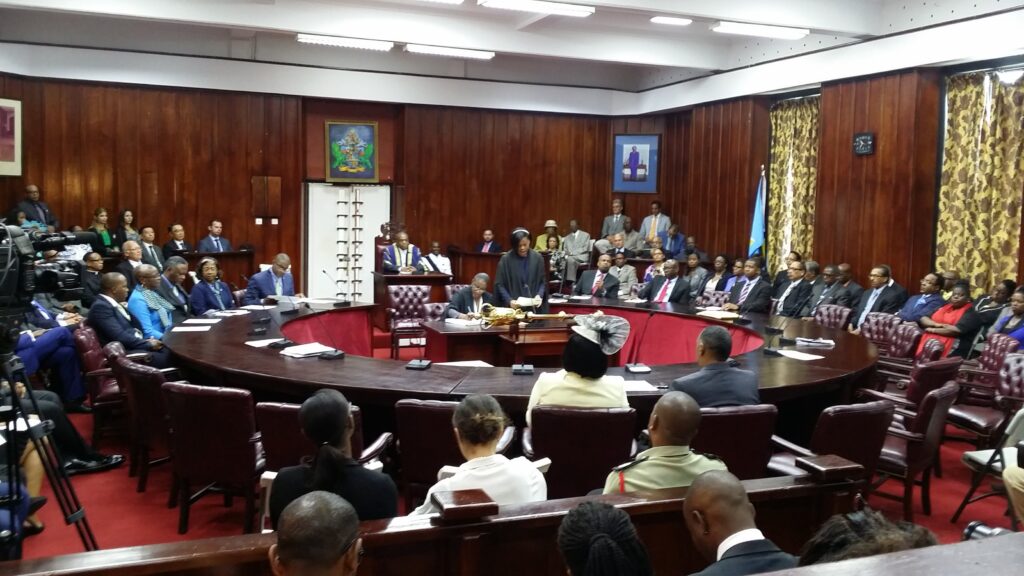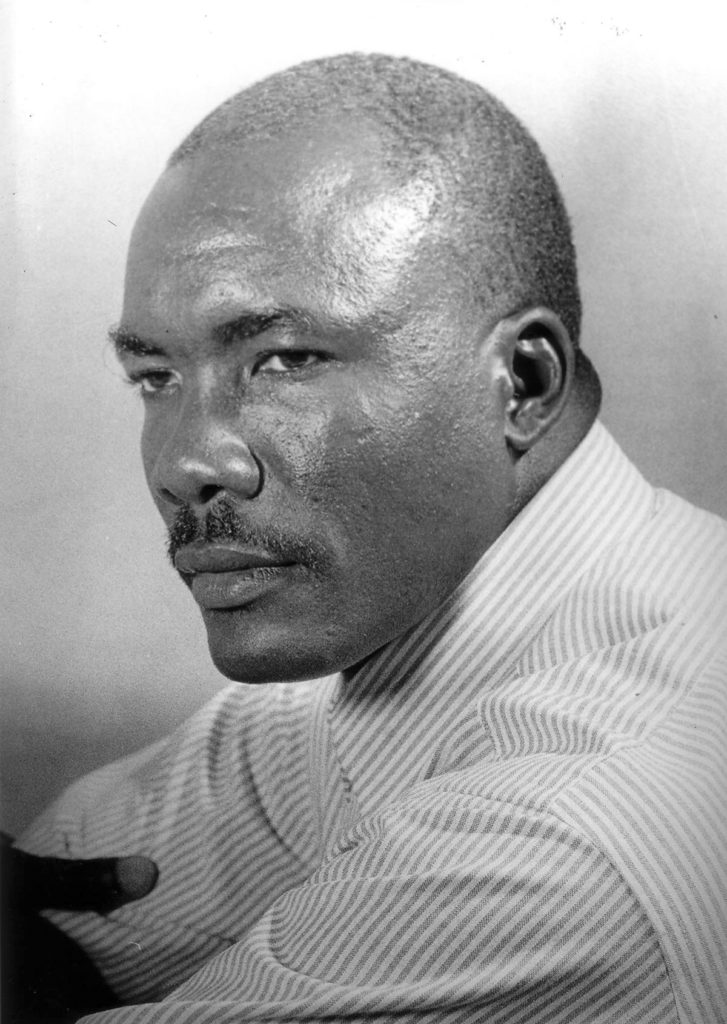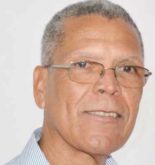The Biggest Problem Facing St. Lucia

Please, let me repeat, don’t let the St. Lucia Labor Party (SLP) use the Chastanet Ultimatum—Vote Labor or suffer the Allen Chastanet train wreck— to win your vote, for as bad as the prime minister, Allen Chastanet, may have mishandled the country, he is not the biggest problem we face, neither is covid-19. On the contrary, the prime minister may have done the country a big favor, because if according to some he has taken things to their ultimate conclusion, to where no other politician has taken them, Chastanet has highlighted the defects of our political system, the defects of our system of governance, which is the greatest threat to our democracy, our existence, our social, political, and economic development.
In order words, if Chastanet has run down the country unchecked, that is because he operates within a political and governance structure, which was none of his making, that enables such outcomes.In fact, what separates Chastanet from his predecessors might be more a matter of style than a matter of substance. Apparently, in his inexperience, probably losing sight of the fact that he has to face voters every five years, Chastanet may have been bolder and more blatant in his disregard of the citizenry and the nation’s laws and institutions. In other words, Chastanet is just a product of the system. He may have taken things to the extreme, but he is not alone in abusing the system.
Rochamel, Grynberg, the Le Paradis environmental disaster (which receives little attention) and the Black Bay lands fiasco cannot be attributed to him. Yet this is only what we know about, what may be just the tip of the iceberg. If the Desert Star Holdings (DSH) agreements had not leaked, all what we would have known and seen about DSH would have been eye-popping development plans/designs, and who doesn’t like development? So, the question is, how much has the country sacrificed and how much money politicians have pocketed for some of the development projects that have taken place and of which we are proud?
Unless pertinent documents get leaked, we will never know for sure of governments’ exploitations of the country. Imagine that: if Chastanet and UWP had not ousted Richard Frederick from the party, the leaked DSH agreement may have never seen the light of day.
Chastanet is not totally to blame for DSH and for the CIP (Citizenship by Investment Program); Kenny Anthony’s administration laid the groundwork for that. Chastanet just drove things to their lowest common denominator. The political and governance factory was designed to manufacture anything but such undesirable products, such atrocious outcomes. We can throw away, destroy each defective batch of products, but the factory will keep churning them out. It has no choice; like in the Matrix, it is by design.
The system Chastanet inherited, and the system that gave birth to him is one of no campaign finance reform. It is a system that enabled a foreign government to give millions of dollars to elected politicians in exchange for diplomatic relations, a phenomenon that led to the demise of the father of the nation. It is a system that enabled ministers to insist on bribes of hundreds of thousands of dollars to allow foreign entities to establish businesses in the country. A system that enables ministers to establish shell companies, either directly or indirectly, to direct patronage to their pockets. It is a system that enables ministers who, having turned from rags to riches on either the nation’s purse or kickbacks or bribes or both, take to turning the House of Assembly into a charade. A system of no recourse when government violates the laws of the land and corrupts or undermines its institutions.
A system where prime ministers can unilaterally without even the consent of their cabinet sign agreements putting the country into multi-million-dollar holes. A system where there are no checks and balances in government; where because of our smallness and lack of arm-length relationships it is anyone’s guess how independent is our judicial system (which is supposed to serve as another check and balance in our governmental system); where the district reps form both the legislature (House of Assembly) and the executive (cabinet); where there is little accountability to the voters; where policies and projects are implemented with little voter participation, consultation, much less consensus; and where the only time voters have a say is every four to five years at the voting booth.
In economics and industrial organization there is a structure-conduct-performance paradigm in which structure (number and size of firms, regulations, etc.) influences the behavior or conduct of firms (investment, monopolistic behavior, collusion, advertising, price fixing), which affects their performance (economic efficiency, profitability, wealth accumulation). The same applies to our political system and to any system you can think of. The structure of our political system (the composition of parliament, the rules that govern its functioning) determines the behavior of our elected politicians (dictatorship, economic extraction, lack of transparency and accountability, trampling the rights of citizens). And the behavior of our government and elected politicians affects national performance (economic growth, poverty, wealth distribution, health, social and economic wellbeing, quality of life, etc.). In search of all these nice and desirable outcomes, we keep alternating between SLP and UWP as if they are the problem; they are the disease and not just the symptoms of the disease.
In this political juncture, SLP would like us to believe that Chastanet is the cancer, the problem, and as soon as we get rid of Chastanet, it will be happy days again. You know the rest of the story. When we change UWP and put in SLP, we then realize that the cancer may have retreated a little, but it’s still there. It didn’t go away. So next election, like a yoyo, we return to UWP. Instead of redesigning the factory, we keep wasting our time discarding defective batches of products, expecting the next batch of products to meet our expectations, unmindful of the fact that as designed the factory can produce anything but defective products.
When Sub-Saharan African countries like Sierra Leone, Ghana, Kenya and Zambia gained their independence, there was gleeful anticipation of the social, political, and economic advancement that would follow. They thought all they had to do was kick out the evil colonial powers, such that their leaders who made it all come to pass became overnight heroes, knights in shining armour. Like the epic tales, they had faced great dangers and overcome formidable obstacles and opponents, to bring home the elixir that would heal the nation and make the country overflow with milk and honey.
Sadly, what many were not fully cognizant of was that the colonial powers had establish extractive political and economic institutions in these countries, which, according to Acemoglu and Robinson, in their book Why Nations Fail: The Origins of Power, Prosperity, and Poverty, is a recipe for impoverishment. Extractive political institutions obtain when power is absolutist, i.e. the distribution of power is narrow and unconstrained, and/or when there is a lack of political centralization or state centralization. Extractive economic institutions are designed to extract income and wealth from one subset of society (normally the majority) to benefit a different subset (normally a minority political elite).
The West Indies slave plantation system was an extreme example of an extractive political and economic system. The white minority enjoyed absolutist political power with few constraints over the black population, and the slave plantation economy was designed to extract all surplus production beyond subsistence for the benefit of the minority white population.
So with an inheritance of extractive institutions, rather than realizing post-independence progress and prosperity, these Sub-Saharan African countries plunged into greater social and economic despair, some of them even becoming failed states, their home-grown leaders, once overnight heroes, proving to be even more evil and oppressive than the colonial rulers they replaced. The lesson is clear. Changing the players while leaving the structure and rules intact can be tantamount to digging a deeper grave.
The only way to realize the performance, the outcome, we desire is to change the structure of our political and governing institutions which would change the behavior of our elected politicians and hence the performance, the progress of the country.
So how do we restructure the system to realize the promised land? Well, just as there is no shortage of development ideas and plans, there has been no shortage of how to change the constitution, the structure of governance, and the political process to ensure better and greater representation, greater accountability, consensus, voter participation and to prevent the excesses the Chastanet administration has been accused of. As starters, please visit Dr. Stephen King’s article, Enough is Enough, and the Report of the St. Lucia Constitutional Reform Commission; and also article(s) by the highly prolific David Prescod, one of our better writers contributing regularly to newspapers.
The constitution of St. Lucia stipulates that any alteration to the constitution must be supported by the votes of at least two-thirds to three-quarters of all members of the House, depending on which section of the constitution is under such consideration. Since statehood (1967), only four administrations have had at least a two-thirds majority in the house, and only three have had at least a three-quarters majority. In all of Sir John’s dominance of St. Lucian politics, only once did he muster a two-thirds or greater majority. That was in 1982 when, following the SLP governmental debacle, UWP won 14 seats, representing 82% of the 17 seats on offer. The Kenny Anthony-led SLP two consecutive landslide victories (1997 & 2001) account for the other two times that an administration has enjoyed at least a three-quarters majority.
Constitution reform can be a lengthy process, so it may take an administration, desirous of such change and with the requisite majority in the House of Assembly, multiple terms to achieve. Hence the party and the prime minister who has been best positioned to change our constitution and the structure of our governance is the SLP administration of 1997-2006 with Kenny Anthony at the helm, holder of a PhD in law from the university of Birmingham.
Constitution reform wasn’t attempted during that period. Nonetheless, it turns out that an overwhelming majority in the house would have been a non-issue because, as I said before, the accomplishment of most things is more a matter of will and desire than a matter of resources. When, in 2015, after seven years (2004 -2011) in the making, the Constitutional Reform Commission presented its report to the House for consideration, it was rejected by a vote of 17-0 (follow Rick Wayne for some of the house deliberations.
The irony is that it was the House of Assembly in 2004 under the control of Kenny Anthony’s SLP administration that decreed the Constitutional Reform Commission, yet 11 years later (2015), not one of the SLP district reps in the once again Labor controlled House of Assembly voted in favor of constitutional reform. Leaving one to wonder whether the Constitutional Reform Commission was just SLP’s way of appeasing the populace with no intention of following through.
This result suggests that even if SLP were to win all 17 of the seats on offer in this coming election, unless something drastic intervene, like a people’s revolution for constitutional change, we should expect business as usual. So the notion that, with the expulsion of Chastanet the country will return to happy days, so for now let us focus strictly on getting rid of “this nemesis” called Allen Chastanet, and all other things shall be added unto the country, is a delusion within a delusion.
The politicians’ (on both sides of the isle) demonstrated take on constitutional reform should surprise no one, for any political scientist will tell you that the primary objective of a politician is to get elected and stay in power, and it is a rare feat when someone gives up power willingly. Looking after the best interest of their constituency and that of the country is of secondary or incidental concern to politicians. This means that the only way that citizens can ensure that the interest of politicians are aligned with theirs is through diligent and unceasing monitoring and advocacy, and through protest action. In other words, making sure that politicians pay a heavy price for deviating from the interest of their charge.
By extension, the only way constitutional reform will take place is by people power, by a revolution. So Richard Frederick’s attempted island-wide motorcade (which led to the arrest of SLP activist, Christopher Hunt, for what the authorities called “unlawful” anti-government motorcade) to protest against the UWP government and to oust Chastanet from power, not unlike how Chastanet and his UWP had kicked him from the party, is misplaced effort; the country would have been better served if he had led a motorcade, or better yet a people’s revolution, for constitutional change.
The above admonishment isn’t just for the benefit of the populace. The reelection of SLP may depend on it, the realization of the Chastanet-must-go slogan may hinge on it. Because I’m not sure that the tired Labor mantra of playing victim, of rescuing the poor and down-trodden, of what the big, bad wolf of a Compton or a Chastanet is doing to you, of fear mongering akin to the Christian hell fire and brimstone threat to win souls (votes), will cut it. Business people think Flambeau as opposed to Labor is better for business. If Chastanet is trampling the nation’s laws and institutions, then he is creating an environment in which businesses feel freer to wheel and deal, to disregard or bend restraining laws and standards. So the Chastanet slogan may not resonate as strongly with them.
Also, I just cannot see how the youth, who I believe cares more about jobs, scholarships, telecommunication gadgets, than about corruption (which they attribute to both parties), will be inspired by the slogan Chastanet-must-go. Yes, the slogan is likely to motivate the SLP base to campaign and join the voting queue. But it is also likely to sharpen the battle swords of the entrenched Flambeaus. So then the question: Is the Chastanet Ultimatum, the Chastanet train wreck, menacing enough and is the Chastanet-must-go slogan powerful enough to bring out the undecided voters, those sitting on the fence unimpressed with Chastanet but to whom the reasons why they voted out Labor in 2016 remain?
Beware of Underestimating Allen Chastanet

It seems that in the Kenny Anthony era, SLP has kept making the mistake of underestimating the UWP. They were stunned in 2006 when a geriatric, though larger-than-life persona, John Compton led his embattled UWP to victory. During that election campaign, so confident were the Labor Party, having racked two consecutive landslide victories, that they took to ridiculing John Compton’s advance age, calling him a “toothless tiger.”
SLP suffered an even greater shock when in 2016 they were soundly defeated by a falling-apart UWP led, not by the mythical and heroic Sir John Compton, but by Allen Chastanet, a political novice whom they had accused of barely able to read and write, of lying about earning university degrees, of being an empty head, a spend drift and a con-man, of being a non-St. Lucian born of the politically incorrect race and culturally barely St. Lucian. The same Allen Chastanet of whom it was alleged that his father once sacked him as managing director of his hotel because his mismanagement of money had turned the business downhill, forcing some to ask: How can a man unfit to run a hotel, be fit to run a country?
In the 2016 election UWP won 11 seats to SLP’s 6, they garnered 46,165 votes or 54.76% of all valid votes compared to SLP’s 37,172 or 44.09% of valid votes. Yet SLP was lucky to win those 6 seats, several of which were won by narrow margins. Dr. Kenny Anthony won by 240 votes, his narrowest margin of victory (the next closest was by 624 votes in 2006) since representing Vieux Fort. If Dr. Keith Mondesir, the opposition UWP candidate, had put up a credible campaign, the results of the 2016 elections may have stunned Kenny Anthony and the Labor Party even more deeply.
It would appear that not only have SLP formed a habit of underestimating the UWP, they have formed a habit of losing to seemingly weak UWP oppositions.
Now, in 2020, we are at another junction of St. Lucia’s political history. Allen Chastanet is being vilified as an enemy of the state. Many have opined he has proven unfit to rule. Like in 2006 and again in 2016, Chastanet’s UWP seems teetering and destined to fail in its electoral bid. So SLP may well be thinking all what it will take to topple what some regard as a beleaguered and discredited UWP government is an ever so gentle breeze of the mantra Chastanet-must-go.
Woe be unto those who ignore history. I’m afraid the Chastanet-must-go mantra, and the Chastanet Ultimatum is likely to fail. SLP’s only savior is inspiring leadership. SLP needs a new message, a new narrative, a new direction, a message of hope, a message of engaging, accountable, transparent and participatory government, a message of constitutional reform, a message of not taking the populace for granted, a message in tune with the 21st century, a message of closing the gap between St. Lucia and first world countries, a message or vision of moral, social and economic upliftment backed up by a concrete plan. A message to inspire all St. Lucians, young and old alike, SLP and UWP supporters alike, businesses and households alike. SLP needs to discard the Chastanet Ultimatum, stop using it as a crutch, as a smokescreen to avoid getting down to the serious business of engineering a new path for the upliftment of the country.
Andrew Antoine, a cultural and social activist who claims to have known Philip J. Pierre for over 30 years, said that the SLP political leader “is a humble, honest, caring, principled, and very intelligent man… his persona, his demonstrated firm grasp of local, regional and international issues, and empathy with our people, will guide us through the difficult times of rebuilding St. Lucia after this disastrous Allen Chastanet-led UWP administration is voted from office.” This was offered as a counterargument to an earlier comment I made that with Philip J. Pierre as prime minister St. Lucia is likely to get a repeat of the Kenny Anthony-led Administration that voters had strongly rejected in the 2016 elections.
If, as Andrew Antoine intimated, Philip J. Pierre as prime minister will usher in a new and improved era in the life of the nation, then I can think of no better way to signal and realize this change and to improve his chances of winning the elections and sitting on the throne than to embrace constitutional reform (thus more inclusive political and economic institutions) and to make that part of his election platform and to impress upon the nation that to be able implement constitutional reform he would need at least 14 electoral seats. If all this were to manifest, it will set Philip J. Pierre apart from all politicians who came before him, and history may record him as the hero who captured and brought home the elixir that set the country on a new path of unprecedented holistic development. A feat not even John Compton, the father of the nation; George Odlum, the great enlightener; and Dr. Kenny D. Anthony, the shepherd who steered the nation into the 21st century, could lay claim.
This may sound like fiction. But it’s not. Earlier we mentioned that extractive institutions are a recipe for impoverishment. Well, turning once more to Acemoglu and Robinson and their book Why Nations Fail: The Origins of Power, Prosperity, and Poverty, the opposite of extractive political and economic institutions are inclusive political and economic institutions. Inclusive economic institutions foster broad based participation in economic activities and allow individuals the freedom to make economic choices. Inclusive political institutions are centralized and are pluralistic in that power is broadly distributed and is subject to constraints or check and balances. According to Acemoglu and Robinson, the rich nations of the world are invariably those with a high degree of inclusive political and economic institutions. Therefore, with constitution reform fostering more inclusive institutions, we can expect renewed economic progress.
Political Introspection of St. Lucia
The Allen Chastanet Ultimatum (Part 1 of 2)
Vieux Fort Political Leadership Crisis

The author, Anderson Reynolds, was born and raised in Vieux Fort, St. Lucia, where he now lives. He holds a PhD in Food and Resource Economics from the University of Florida. He is the author of four books, including the memoir, My Father Is No Longer There (2019) and three award-winning and national best-selling books, namely the creative nonfiction, The Struggle for Survival: an historical, political, and socioeconomic perspective of St. Lucia (2003), and the novels The Stall Keeper (2017) and Death by Fire (2001). Dr. Reynolds’ books and newspaper and magazine articles have established him as one of St. Lucia’s most prominent and prolific writers and a foremost authority on its socioeconomic history.
![]()



